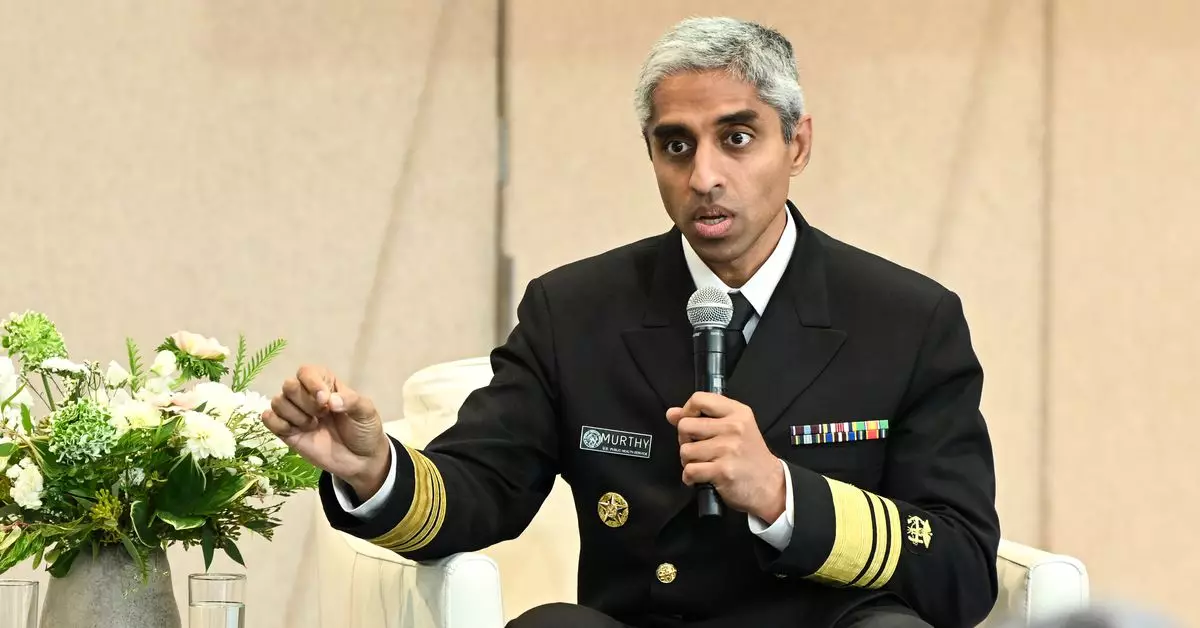The US Surgeon General, Dr. Vivek Murthy, has recently put forward a proposal urging Congress to introduce warning labels for social media platforms. These labels are intended to alert parents and adolescent users about the potential mental health risks associated with excessive use of social media. Drawing parallels to warning labels on tobacco and alcohol products, the aim is to increase awareness and prompt behavioral changes among social media users.
Dr. Murthy has identified a mental health crisis among young people, with social media being pinpointed as a significant contributor. Studies cited by the surgeon general indicate that nearly half of adolescents experience body image issues as a result of social media, and those who spend more than three hours a day on these platforms are at a higher risk of anxiety and depression. The debate surrounding the connection between social media usage and mental health issues in minors continues, with conflicting opinions among experts and tech industry leaders.
Despite differing perspectives on the relationship between social media and mental health, Dr. Murthy emphasizes the urgency of addressing the risks associated with social media use among children and adolescents. He stresses the importance of taking immediate steps to mitigate these risks, including advocating for responsible social media behavior and supporting further research into its health impacts. Urging swift action, Murthy highlights the necessity of acting decisively in the face of an emergency, even with incomplete information.
In addition to warning labels, Dr. Murthy is calling for legislative measures to protect young people from online threats such as harassment, abuse, exploitation, and exposure to harmful content on social media platforms. His proposals include prohibiting the collection of children’s data, limiting features that encourage excessive use like autoplay and infinite scroll, and implementing independent safety audits for social media companies. He emphasizes the need for transparency and accountability from these platforms by sharing data on health effects with independent scientists and the public.
While Dr. Murthy’s recommendations address critical issues related to social media and mental health, it is crucial to acknowledge the challenges in implementing these measures. The lack of regulatory movement within the Senate and House of Representatives suggests that congressional approval for these proposals may be delayed. As Americans await potential changes in social media policies, the call for more concrete actions backed by evidence remains unfulfilled.
The call for social media warning labels by the US Surgeon General underscores the pressing need to address mental health risks associated with digital platforms. While the proposal signifies a proactive approach towards protecting young users, the path to implementing these measures requires collaborative efforts from policymakers, tech companies, and the public. As debates on the impact of social media on mental health persist, Dr. Murthy’s urgent call for action serves as a reminder of the ongoing challenges in safeguarding the well-being of the younger generation in the digital age.


Leave a Reply